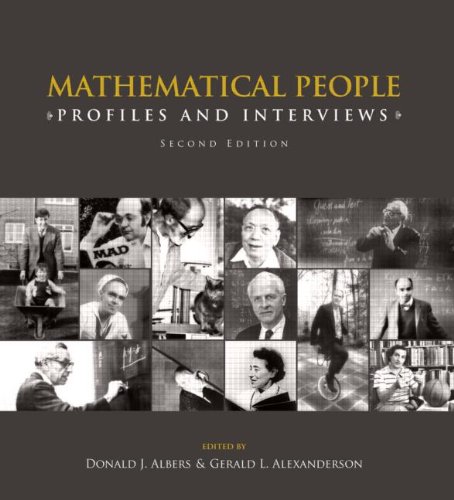

Most ebook files are in PDF format, so you can easily read them using various software such as Foxit Reader or directly on the Google Chrome browser.
Some ebook files are released by publishers in other formats such as .awz, .mobi, .epub, .fb2, etc. You may need to install specific software to read these formats on mobile/PC, such as Calibre.
Please read the tutorial at this link: https://ebookbell.com/faq
We offer FREE conversion to the popular formats you request; however, this may take some time. Therefore, right after payment, please email us, and we will try to provide the service as quickly as possible.
For some exceptional file formats or broken links (if any), please refrain from opening any disputes. Instead, email us first, and we will try to assist within a maximum of 6 hours.
EbookBell Team

4.7
96 reviews
ISBN 10: 1568813406
ISBN 13: 9781568813400
Author: Donald Albers, Gerald L Alexanderson
This unique collection contains extensive and in-depth interviews with mathematicians who have shaped the field of mathematics in the twentieth century. Collected by two mathematicians respected in the community for their skill in communicating mathematical topics to a broader audience, the book is also rich with photographs and includes an introdu
mathematical people profiles and interviews
what percentage of job applicants get an interview
how many applicants do employers interview
mathematical person
interview mathematician
Tags: Donald Albers, Gerald L Alexanderson, Mathematical, Profiles